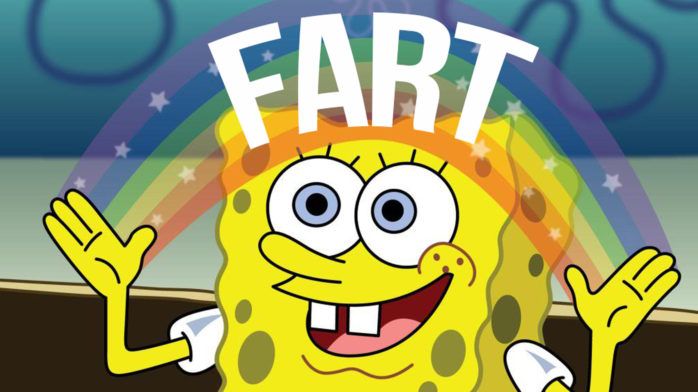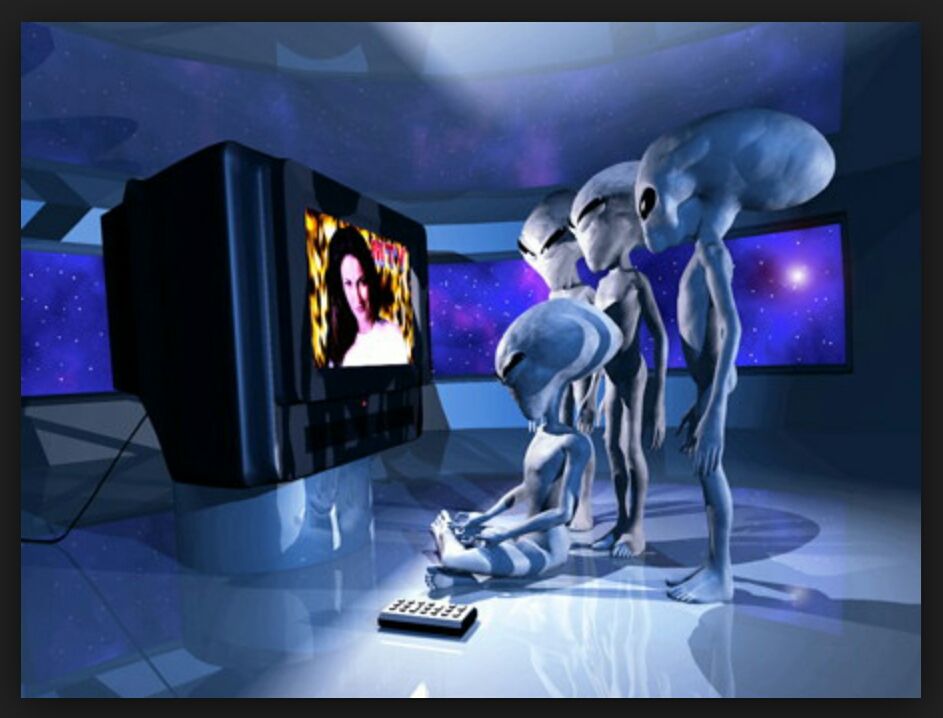Aliens Smell Like a Fart
Listen to “e182 Aliens Smell Like a Fart” on Spreaker.
Article By Eric Spitznagel November 25, 2019 (popularmechanics.com)
• NASA’s roving Martian science lab, Curiosity, has detected dimethyl sulfide, methanethiol, and trace amounts of oxygen on Mars, along with the compounds we already know about, like nitrogen, hydrogen, and carbon dioxide. This is the same chemical composition as flatulence.
• Clara Sousa-Silva, a molecular astrophysics postdoctoral associate at MIT, agrees. “Most of my work in astrobiology looks at anaerobic environments, which have a lot in common with the environments that produce farts. So, yes, aliens are reasonably likely to smell like farts.”
• There are other examples of planets and other celestial bodies with theoretically pungent life forms. For instance, Saturn’s icy moon Titan holds lakes of liquid methane. Using data from the Cassini space probe, NASA was able to replicate the mixture of nitrogen, methane, and benzene found on Titan to learn that Titan smells like farts and gasoline.
• Sousa-Silva points out that the molecule phosphine could be the key to detecting life on other planets. Phospine needs to be manufactured by a process associated with biological life on the earth, because it won’t exist naturally in a mild climate. So if phospine is detected on a habitable planet, there is likely to be life there.
• Carrie Paterson, an LA-based artist and expert in the “cosmology of the senses” points out that there are olfactory receptors not only in our nose but in our skin and internal organs. She thinks there is a “distinct possibility that we might be able to communicate with aliens through our sense of smell”. “A ‘moldy’ smell is not just a smell”, Paterson says, “it’s a sensation our bodies have in the presence of fungus. Fresh’ isn’t just about air without pollution, but rather, how a clean environment is sensed by our skin.” What might smell ‘good’ or ‘bad’ to an alien would depend on their particular ‘corporeal composition’.
• In 1996 in Varginha, Brazil, sisters Liliane and Valquíria encountered a creature they thought might be the devil. When their mother went to investigate, she noticed a putrid odor of ammonia hanging in the air. Ammonia is a sulphurous gas, similar to a fart. And it is the predominant odor on the planet Uranus.
• Michael Menkin, a former technical writer for NASA, has heard firsthand from extraterrestrial abductees that aliens “really smell.” Menkin says that “their alien-human hybrids (also) stink because they never bathe.” But as much as an alien’s odor may offend us, our human scent, and the scents we find appealing, might be just as offensive to them. “Right now I have an abductee who stops aliens by spraying Lysol all over her house,” said Menkin. “So Lysol works as well as perfumes.”
• [Editor’s Note] I recall Stewart Swerdlow saying that reptilians smelled horrible, like ammonia and sulfur. And it felt good to the reptilians to spray Lysol disinfectant spray on their body’s skin. Maybe that helped a little with the smell?
But something doesn’t ring true here. NASA is said to have detected dimethyl sulfide and methanethiol on Mars, supporting the flatulent atmosphere theory. But they found only “trace amounts of oxygen on Mars”. Those who claim to have been on Mars have all said that that there is enough oxygen in the atmosphere for light breathing without an oxygen tank. I have never heard anyone who has been on Mars say that the air smelled like farts.
Is NASA feeding universities such as MIT data to make people think that the Mars atmosphere is not only uninhabitable but disgusting, to discourage anyone from wanting to go there?
Sometimes it takes a child to point out the important questions.
My 8-year-old is a burgeoning amateur scientist, so he keeps up with the latest science news a little more closely than I do. He learned recently that Curiosity, NASA’s roving Martian science lab, has been detecting some rather interesting organic and chemical molecules on the red planet, some of which could be clues of life. So far it’s discovered dimethyl sulfide, methanethiol, and most surprisingly, trace amounts of oxygen.

Along with the compounds we already know about, like nitrogen, hydrogen, and carbon dioxide, Mars has the same chemical composition of flatulence. Which led my son to one inescapable conclusion: If aliens exist, they probably smell like farts.
I don’t know enough about farts, Mars, or aliens to refute him, so I reached out to somebody who does: Clara Sousa-Silva, a molecular astrophysics postdoctoral associate at MIT.
“Your son is absolutely correct in his inference,” she told me. “Most of my work in astrobiology looks at anaerobic environments, which have a lot in common with the environments that produce farts. So, yes, aliens are reasonably likely to smell like farts.”
And at least according to Sousa-Silva, the answer to that question is: not especially pleasant. Even if Martians denied it, they most definitely supplied it.
But we don’t need to single out Mars. There are other examples of planets and other celestial bodies with theoretically pungent life forms.
Saturn’s icy moon Titan has gotten a lot of attention of late, thanks to data collected from NASA’s Cassini spacecraft over a 14-year mission. Its lakes of liquid methane, which may be filled with alien crystals, have raised questions about the “possibility of life,” as NASA planetary geologist Rosaly Lopes phrased it to Reuters last week.
 A few years back, some of the gases and hydrocarbons collected by Cassini were used to create a recipe that replicated the “aromatic flavors” of Titan. Composed mostly of nitrogen, methane, and benzene (and a few other aromatics), NASA researchers were able to create in the lab what could be dubbed Eau de Titan, the cologne of choice for Titan aliens (should they exist).
A few years back, some of the gases and hydrocarbons collected by Cassini were used to create a recipe that replicated the “aromatic flavors” of Titan. Composed mostly of nitrogen, methane, and benzene (and a few other aromatics), NASA researchers were able to create in the lab what could be dubbed Eau de Titan, the cologne of choice for Titan aliens (should they exist).
What they discovered: Titan smells like farts and gasoline.
Does that mean Titan aliens could conceivably share the hearty stench of a garage filled with flatulent auto mechanics? Possibly … but probably not, says Sara Seager, an astrophysicist and planetary scientist at MIT.
“If the alien life was producing hydrocarbons, that life would smell like gasoline,” she says. “Right now it sounds like the Titan atmosphere at large smells like gasoline, independent of life.”
FAIR USE NOTICE: This page contains copyrighted material the use of which has not been specifically authorized by the copyright owner. ExoNews.org distributes this material for the purpose of news reporting, educational research, comment and criticism, constituting Fair Use under 17 U.S.C § 107. Please contact the Editor at ExoNews with any copyright issue.


